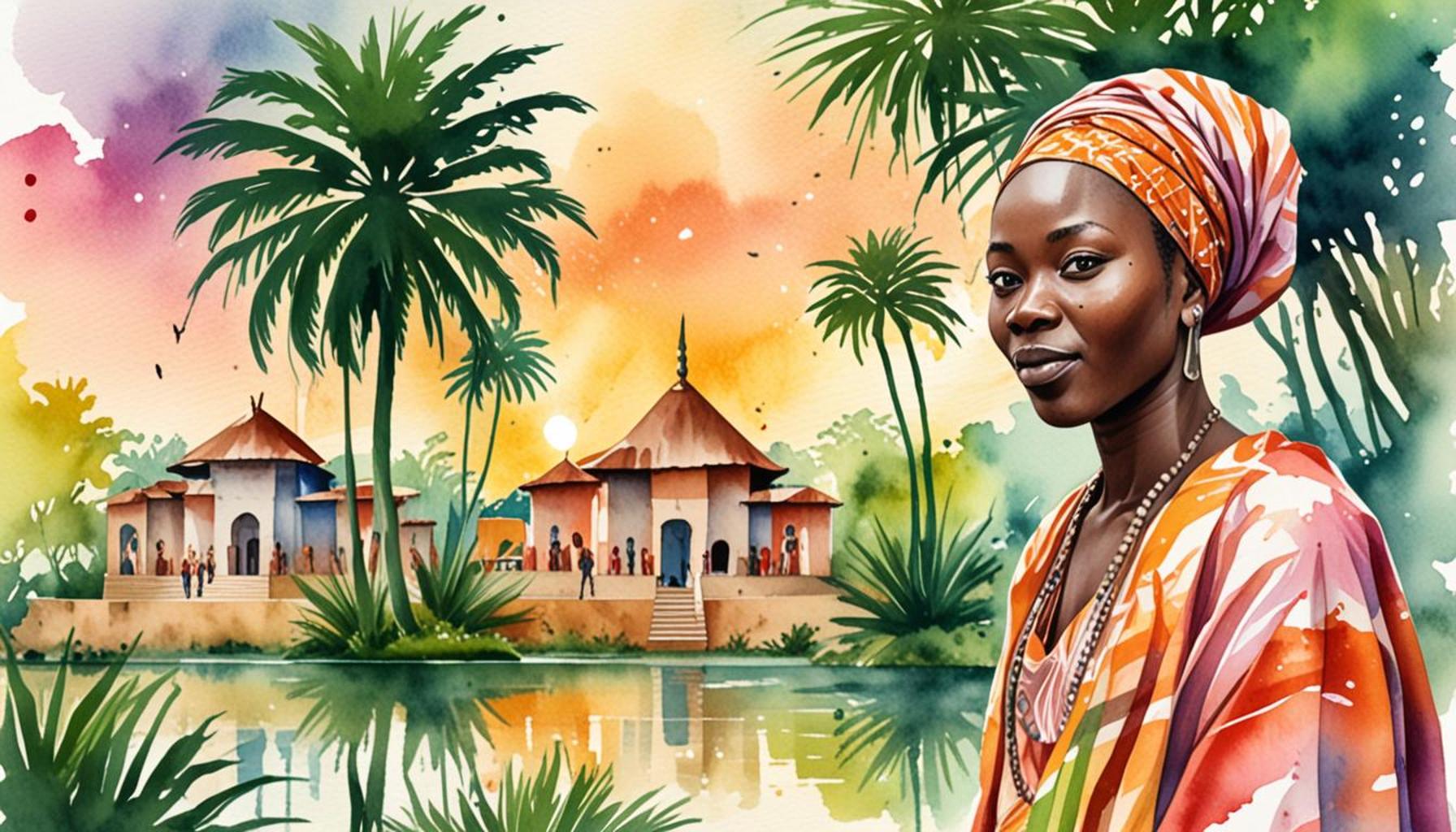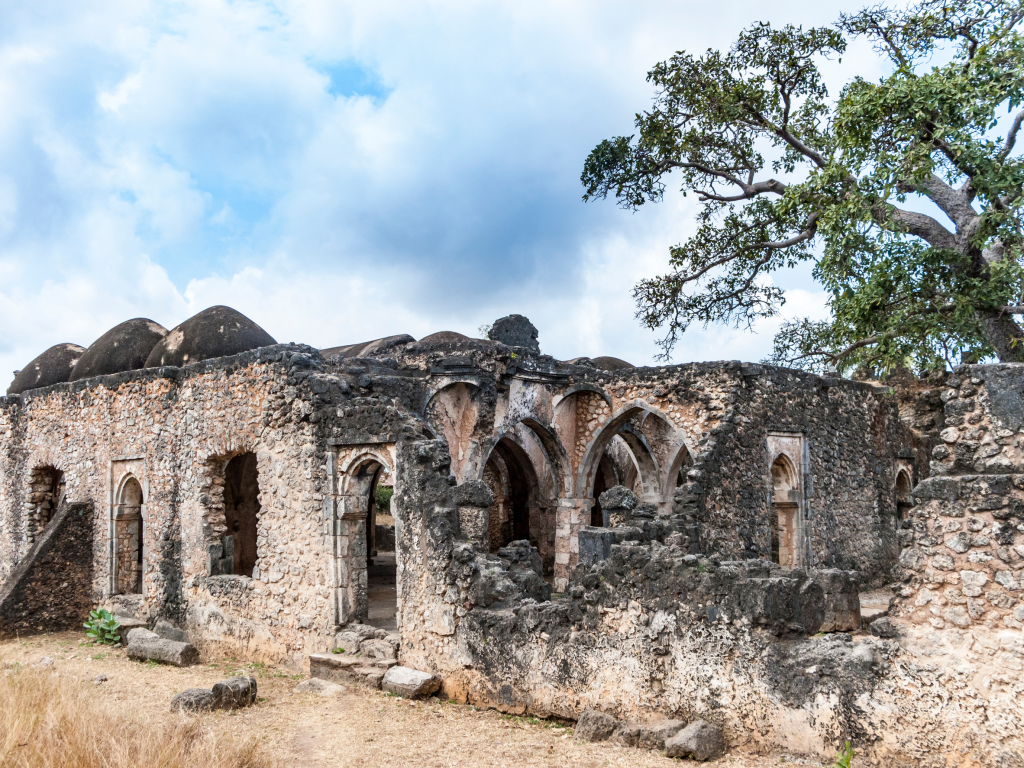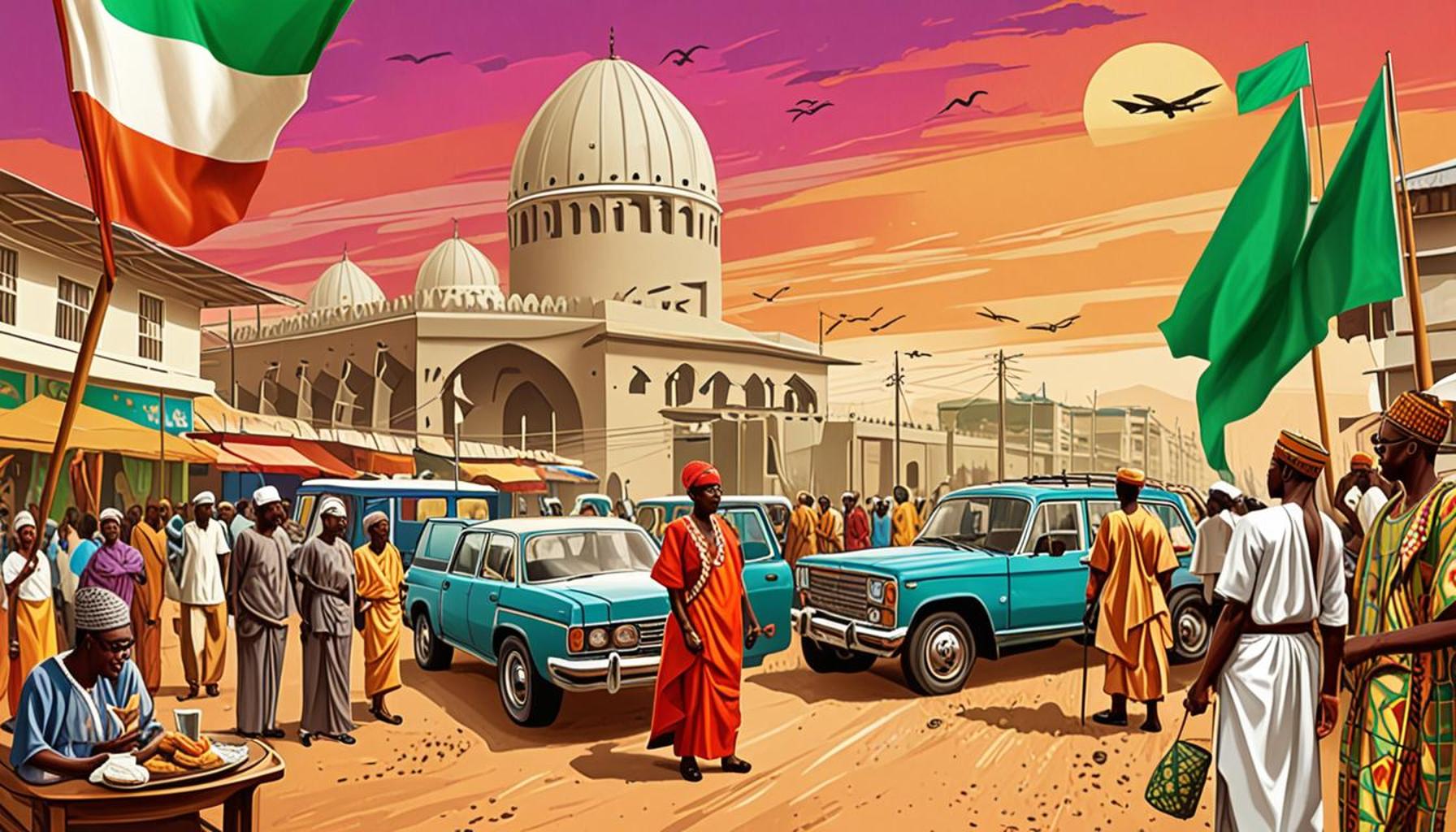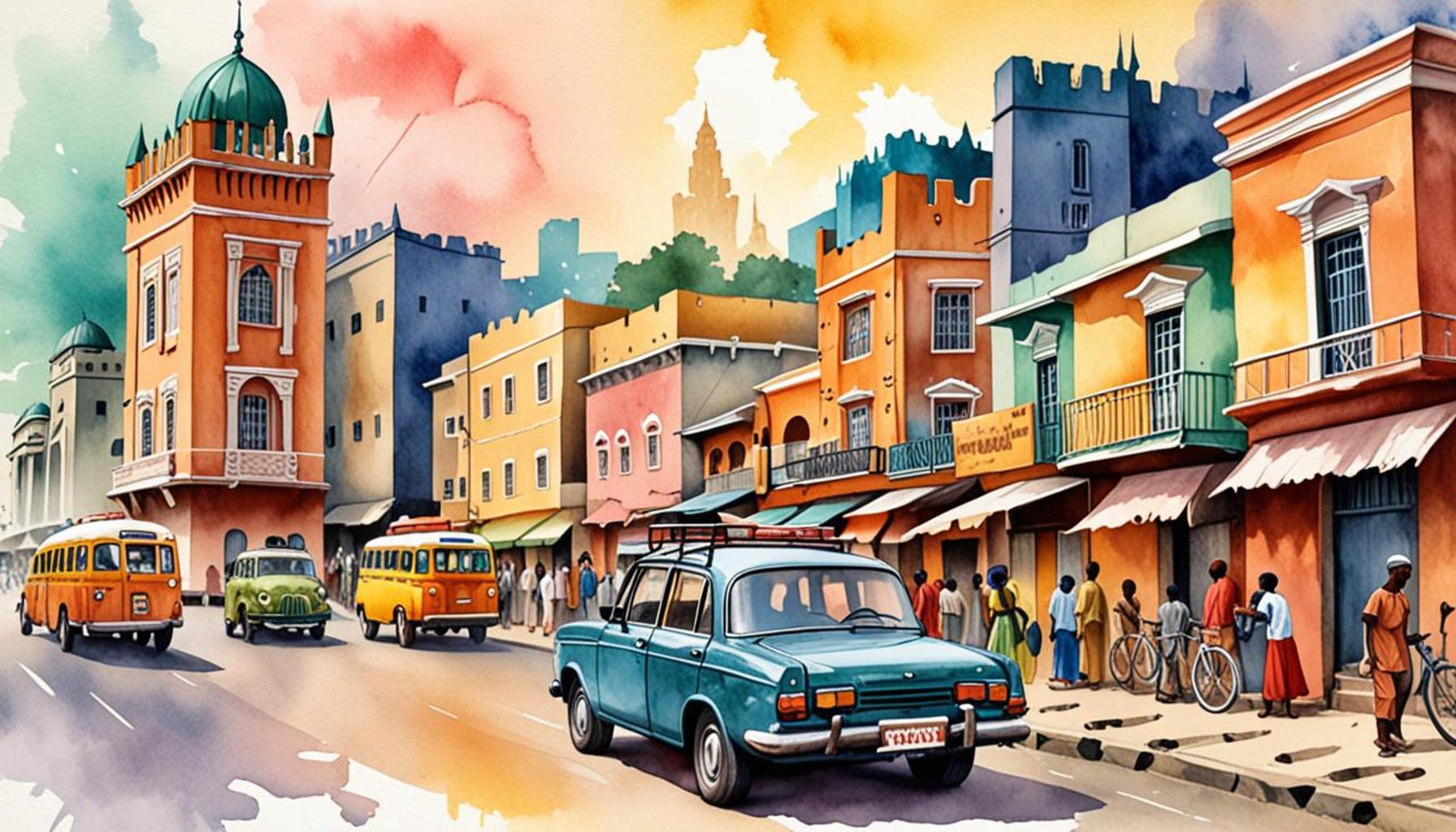Spiritual Itineraries: Exploring Sacred and Religious Sites in Nigeria

A Journey Through Nigeria’s Spiritual Tapestry
Nigeria’s landscape is punctuated by a symphony of faiths that coexist harmoniously, offering visitors an unparalleled opportunity to explore its sacred heritage. The diversity of religions—African traditional beliefs, Christianity, and Islam—creates a unique cultural mosaic that reflects the nation’s history and spirit. Each region of Nigeria is home to remarkable religious sites, each telling its own story and embodying the beliefs and histories of the people.
Highlights of Spiritual Itineraries
- The Aso Rock: This iconic monolith stands as a symbolic sentinel in Abuja, the nation’s capital. Beyond its stunning natural beauty, Aso Rock is intertwined with Nigeria’s political and spiritual histories, serving as a prominent backdrop for national events and gatherings, often seen as a symbol of resilience amid challenges.
- The Osun-Osogbo Sacred Grove: Recognized as a UNESCO World Heritage Site, this sacred forest is dedicated to the river goddess Osun. The annual Osun-Osogbo Festival attracts visitors and worshipers from around the world, showcasing age-old rituals, traditional performances, and a deep sense of community. Here, the convergence of spirituality and cultural heritage creates an immersive experience.
- Zenith of Religion: Nigeria is home to a plethora of spiritual architecture, including grand mosques like the National Mosque in Abuja, and numerous historic churches, each reflecting the architectural styles and cultural nuances of their regions. For instance, the Sacred Heart Cathedral in Enugu showcases stunning Gothic details, while the sprawling Al-Nour Mosque in Kano represents both Islamic devotion and community life.
These spiritual itineraries are more than just destinations; they offer profound opportunities for personal connection, reflection, and understanding of Nigeria’s cultural wealth. Each site is steeped in narratives that illuminate the evolution of communities and their beliefs, making them essential stops for both pilgrims and curious travelers alike.
Why Explore Sacred Sites?
Delving into these sacred spaces allows visitors to walk the paths of faith and history, enriching their understanding of the diverse spiritual landscape that shapes Nigeria. By visiting these sites, travelers can:
- Experience local traditions and customs firsthand, often participating in rituals that have been maintained for generations.
- Connect with fellow seekers of faith and curiosity, fostering a sense of community that transcends cultural divides.
- Gain insights into the spiritual history of the nation, unveiling the deeper narratives that influence modern society.
As you embark on this enlightening journey, prepare to encounter the intricate and profound stories that breathe life into Nigeria’s sacred sites, inviting you to reflect, learn, and appreciate the spiritual diversity of this vibrant nation.
RECOMMENDED: Check out this similar article

Sacred Journeys: A Deeper Look into Nigeria’s Spiritual Sites
As you embark on your journey through Nigeria’s spiritual itineraries, it becomes increasingly clear that each sacred site is not merely a destination but a portal into the belief systems and cultural practices that have shaped the nation. From ancient groves to modern mosques, these religious landmarks offer a glimpse into Nigeria’s rich tapestry of faith, bridging the gap between the past and the present.
Temples of Heritage: The Role of Indigenous Beliefs
Among the most compelling spiritual sites in Nigeria are the shrines that honor the country’s indigenous religions. These sacred spaces often serve as focal points for communal worship and rituals that have persisted for centuries. For instance, the Igbo shrines dedicated to deities like Amadioha are vital to the spiritual life of the communities in southeastern Nigeria. These locations are not just bases for spiritual activities; they are also central to the cultural identity of the Igbo people.
The annual celebrations, or Ukwuani Festivals, in honor of these deities draw crowds eager to engage in traditional dances, offering sacrifices, and showcasing the rich cultural heritage that interlinks with their spiritual practices. Visitors to these shrines can witness firsthand the vibrant customs that still color the lives of many Nigerians today.
Christian Heritage: Pilgrimages and Places of Worship
The major cities in Nigeria are host to some of the most significant Christian sites in Africa, where architecture tells a story of faith and devotion. One such site is the National Cathedral in Abuja, an architectural marvel that attracts thousands of worshippers and tourists alike. Its towering spires and intricate sculptures speak to the deep roots of Christianity within Nigeria.
Another remarkable site is the Ebebiyin Cathedral in Akwa Ibom State, renowned for its exquisite stained glass windows and serene environment. Visitors often flock here seeking solace and spiritual guidance, making it a perfect stop for those on a spiritual journey. Engaging in worship services can offer travelers an intimate connection with local Christian communities.
Islamic Legacy: A Glimpse into the Soul of Nigeria
The Islamic influence is equally significant, especially in the northern regions of Nigeria. The Great Mosque of Kano, with its magnificent mud architecture and historical importance as a center for Islamic scholarship, stands as a testament to the enduring legacy of Islam in Nigeria. It is not merely a mosque but a historical site that narrates the story of trade, culture, and religion along the trans-Saharan routes.
Visitors who venture into the mosque often find themselves captivated by the ongoing activities, such as daily prayers and community events which reflect the communal aspect of Islamic practice in Nigeria. Engaging with local scholars and congregants can provide insights into the rich history and teachings of Islam that have profoundly influenced national consciousness.
Each of these sites forms an integral part of Nigeria’s spiritual landscape, inviting travelers to delve into experiences that are both enlightening and transformative. Whether you are seeking cultural appreciation, spiritual rejuvenation, or a connection to ancient traditions, Nigeria’s sacred spaces beckon with open arms.
| Category | Key Features |
|---|---|
| Cultural Richness | Explore vibrant cultural traditions intertwined with spirituality. |
| Historical Significance | Visit sites of historical importance, reflecting Nigeria’s diverse religious heritage. |
| Inspiring Architecture | Appreciate the stunning architectural designs in sacred sites across Nigeria. |
| Pilgrimage Routes | Follow ancient pilgrimage paths that have spiritual significance. |
Nigeria is a vast country rich in spiritual heritage, featuring a multitude of sacred sites that reflect the essence of its diverse cultures. Each region has unique pilgrimage destinations, ranging from the famous Olumo Rock in Abeokuta to the revered shrines in Kano. Visitors can immerse themselves in the mystique of these locations, learning about the deeply-rooted beliefs that shape religious practices. The country’s churches, mosques, and shrines often showcase incredible artistry and distinct architectural styles, a testament to Nigeria’s rich cultural tapestry. By exploring these sites, travelers not only discover the spiritual significance but also engage with the community, fostering a deeper understanding of local customs and spiritual traditions. From the grandeur of the National Mosque in Abuja to the serene landscapes surrounding the Obudu Cattle Ranch, each destination invites a profound connection to the spiritual essence of Nigeria. The journey through Nigeria’s sacred spaces is one of enlightenment. This exploration offers not just a glimpse into the past, but also an opportunity for personal reflection and growth. The intertwining of spirituality and cultural identity is ever-present, beckoning those on a quest for meaning in their own journeys.
RECOMMENDED: Check out this similar article
Rituals and Traditions: The Living Faiths of Nigeria
Beyond architecture and shrines, the essence of Nigeria’s spiritual landscape is vibrantly captured through the rituals and traditions associated with various faiths. Each religion brings forth unique cultural practices that reveal the intricate relationship between spirituality and daily life in Nigeria.
Festivals of Faith: Celebrating Religious Identity
Nigeria’s spiritual itineraries are often punctuated by vivid festivals that bring communities together in celebration of their faith. The Osun-Osogbo Festival, for example, transcends its immediate geographic significance, marking a deep reverence for the River Osun, a goddess revered by the Yoruba people. This festival attracts thousands of devotees and tourists, showcasing rich cultural performances, art, and a deep sense of community.
During this event, the traditional rituals performed by priests and priestesses take center stage, reintroducing ancient narratives and prayers believed to connect participants with the divine. For visitors, witnessing the festival provides an unparalleled opportunity to delve into Yoruba spirituality and heritage, offering insights into collective beliefs that have remained vibrant for generations.
Religious Pilgrimages: A Quest for Healing and Hope
The phenomenon of pilgrimage significantly enriches Nigeria’s spiritual itineraries. Pilgrimages to destinations such as Mount Wudil, believed to be a sacred site for many Muslims, draw thousands seeking both healing and spiritual connection. The lush landscapes and the tranquility of the mountain inspire devotion, making it not only a physical journey but an emotional and spiritual one.
Christian pilgrimages to sites such as the Adoration Ministry in Enugu, known for reported miraculous happenings, reflect the fervent hope of congregants. Here, personal testimonies of healing and transformation intertwine with the communal aspect of faith, creating a rich tapestry of spirituality that resonates deeply with both locals and visitors. Engaging with community members during these pilgrimages often leads to sharing of stories, enhancing understanding of their spiritual experiences and commitments.
Art and Faith: Expressions of Spirituality
Art serves as another crucial outlet for spiritual expression in Nigeria, particularly through traditional crafts and contemporary creations. The Olowo of Ikare Ekiti’s Arts and Culture Festival exemplifies the synergy between art, culture, and spirituality. Here, artisans display sacred artifacts, beadwork, masks, and carvings that reflect religious narratives and beliefs.
Visiting such cultural events allows travelers to appreciate the intersection of faith and creativity, where sacred meanings are embodied in beautiful forms. Moreover, through workshops and demonstrations, participants can engage hands-on with art practices while understanding the spiritual significance embedded in various creations.
The vibrant expression of faith through art reveals how deeply intertwined spirituality is with everyday life in Nigeria. These creative practices serve as a reminder that spirituality in Nigeria is not only about places of worship; it is a living narrative expressed through culture, festivals, and communal activities.
As you continue your journey through Nigeria’s spiritual sites, these elements combined illustrate how sacred practices are woven into the fabric of society, inviting deeper reflections on belief and identity. Whether it’s through participating in rituals, attending festivals, or exploring artistic expressions, your spiritual itinerary in Nigeria promises to be a rich and fulfilling experience.
CHECK OUT: Click here to explore more
Conclusion: A Journey Through Nigeria’s Spiritual Tapestry
Nigeria’s spiritual itineraries invite both locals and travelers into a profound exploration of the country’s diverse sacred and religious sites. From the mesmerizing Osun-Osogbo Festival to the serene landscapes of Mount Wudil, the vibrancy of faith is interwoven with daily life, providing a dynamic backdrop for understanding Nigeria’s rich cultural heritage. Each festival, pilgrimage, and artistic expression serves not merely as an event, but as a gateway to deeper contemplation of personal and communal beliefs.
Through engaging with heartfelt rituals and witnessing the transformative power of faith, visitors gain invaluable insights into the soul of Nigeria. The interactive experiences, such as participating in local festivals or exploring artistic creations that embody spiritual meanings, enhance appreciation for the diverse practices that reflect the unity and diversity of the Nigerian people.
Moreover, these spiritual itineraries foster connections between different cultures and communities, allowing for dialogues that bridge divides and celebrate shared human experiences. As you delve into the sacred sites and spiritual traditions that define this nation, you will uncover not just places of worship, but an intricate mosaic of faith that encapsulates Nigeria’s identity. This journey is one that promises a transformative encounter, offering both healing and hope—ultimately revealing that spirituality in Nigeria is a living, breathing narrative waiting to be explored.
Embarking on your spiritual journey in Nigeria will enrich your understanding of the power of faith and community, and inspire you to appreciate the myriad ways people connect with the divine across the globe.


